第9章 INTRODUCTION(9)
"If I had gone away openly there would have been entreaties, discussions: I should have wa-vered, and perhaps failed to act on my decision, whereas it must be so. I pray of you to forgive me if my action grieves you. And do you, Sophie, in particular let me go, neither seeking me out, nor bearing me ill-will, nor blaming me . . . the fact that I have left you does not mean that I have cause of complaint against you . . . I know you were not able, you were incapable of thinking and seeing as I do, and therefore you could not change your life and make sacrifices to that which you did not accept. Besides, I do not blame you; on the contrary, I remember with love and gratitude the thirty-five long years of our life in common, and especially the first half of the time when, with the courage and devotion of your maternal nature, you bravely bore what you re-garded as your mission. You have given largely of maternal love and made some heavy sacrifices . . . but during the latter part of our life to-gether, during the last fifteen years, our ways have parted. I cannot think myself the guilty one; I know that if I have changed it is not owing to you, or to the world, but because I could not do otherwise; nor can I judge you for not having followed me, and I thank you for what you have given me and will ever remember it with affection.
Adieu, my dear Sophie, I love you."
The personal isolation he craved was never to be his; but the isolation of spirit essential to leadership, whether of thought or action, grew year by year, so that in his own household he was veritably "in it but not of it."
At times his loneliness weighed upon him, as when he wrote: "You would find it difficult to imagine how isolated I am, to what an extent my true self is despised by those who surround me."
But he must, none the less, have realised, as all prophets and seers have done, that solitariness of soul and freedom from the petty complexities of social life are necessary to the mystic whose constant endeavour is to simplify and to winnow, the transient from the eternal.
Notwithstanding the isolation of his inner life he remained--or it might more accurately be said he became--the most accessible of men.
Appeals for guidance came to him from all parts of the world--America, France, China, Japan--while Yasnaya Polyana was the frequent resort of those needing advice, sympathy, or prac-tical assistance. None appealed to him in vain; at the same time, he was exceedingly chary of ex-plicit rules of conduct. It might be said of Tol-stoy that he became a spiritual leader in spite of himself, so averse was he from assuming author-ity. His aim was ever to teach his followers themselves to hear the inward monitory voice, and to obey it of their own accord. "To know the meaning of Life, you must first know the meaning of Love," he would say; "and then see that you do what love bids you " His distrust of "epidemic ideas" extended to religious com-munities and congregations.
"We must not go to meet each other, but go each of us to God. You say it is easier to go all together? Why yes, to dig or to mow. But one can only draw near to God in isolation . . . I picture the world to myself as a vast temple, in which the light falls from above in the very centre. To meet together all must go to-wards the light. There we shall find ourselves, gathered from many quarters, united with men we did not expect to see; therein is joy."